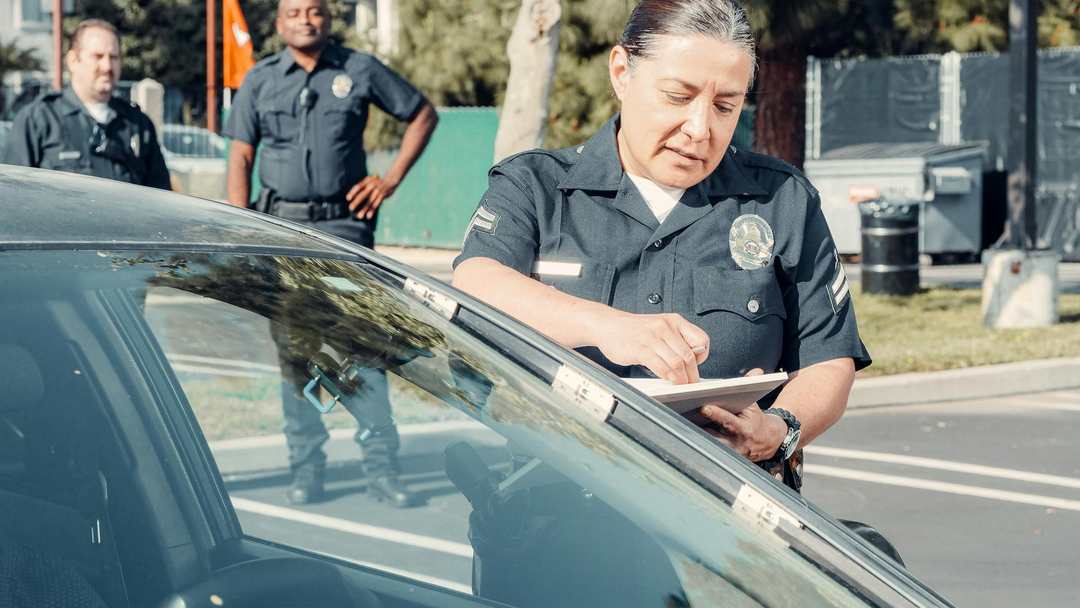The “automobile exception” in Michigan law allows police to search a vehicle without a warrant if they have probable cause to believe it contains evidence of a crime.
This exception is grounded in the idea that vehicles are inherently mobile, meaning evidence could be moved or destroyed before a warrant is obtained.
Probable cause is a key element in applying this exception.
If law enforcement has a reasonable belief—based on the facts and circumstances—that the vehicle contains contraband or evidence of illegal activity, they can conduct a search.
This standard often arises in cases involving drug-related offenses.
For example, the smell of marijuana has frequently been cited as a factor contributing to probable cause, although recent rulings have added complexity due to the legalization of marijuana in small amounts under Michigan law.
Use You Right To Remain Silent
If you have been accused or charged with a crime.
Say nothing to anyone. Talk to us first.
Our firm is experienced in both State and Federal courts defending clients.
CALL NOW
One notable case is People v. Kazmierczak (2000), where the Michigan Supreme Court ruled that the smell of marijuana alone could justify a search under the automobile exception.
However, as marijuana laws evolved, this principle was reconsidered.
In People v. Armstrong (2023), the court ruled that while the smell of marijuana can contribute to probable cause, it must be combined with other suspicious factors to justify a search.
The debate around this exception continues as courts balance law enforcement’s ability to investigate crimes and individuals’ privacy rights, especially with the legalization of marijuana in Michigan.
Cases
Several legal cases have examined the validity of conducting warrantless vehicle searches based on the odor of marijuana, particularly considering the changing landscape of marijuana legislation.
People v. Freddie Wilkins III (2024): In Wilkins’ case, the search was triggered by the odor of marijuana, but his defense challenged whether that alone should constitute probable cause for a broader search, particularly when possession of small amounts of marijuana is legal.
People v. Armstrong (2023): In this instance, the courts in Michigan reassessed the applicability of the automobile exception, taking into consideration the provisions outlined in the Michigan Regulation and Taxation of Marihuana Act (MRTMA).
The court ruled that while the smell of marijuana could still contribute to probable cause, it must be accompanied by other suspicious factors to justify a search. This case closely mirrors Wilkins, where the search was based on marijuana odor but also raised questions about unregistered firearms found during the search.
People v. Moorman (2020): During a traffic stop, a police officer detected the scent of marijuana, and when the defendant denied possessing any, this denial, along with the odor, provided the officer with probable cause to conduct a search of the vehicle.
The court found that the defendant’s behavior, along with the odor, justified the search, similar to the arguments presented in Wilkins. The ruling was based on the idea that such behavior suggests illegal possession beyond the legal limits
People v. Kazmierczak (2000): Previously, Michigan courts held that the smell of marijuana alone was sufficient to establish probable cause for a vehicle search.
However, this decision was later overruled in part due to changes in marijuana laws.
This case laid the groundwork for discussions like those in Wilkins, where courts must determine if the presence of marijuana (legal in small amounts) is enough to justify a search.
Note: This article provides a general overview and does not substitute for legal advice. Anyone charged with a CSC offense should consult an attorney for specific legal guidance.
More Articles
Can I be arrested for flying a drone in Michigan?
Someone asked us... Can I be arrested for flying a drone?As we have seen ... They can charge you and arrest you for whatever they want. But Can I Be Arrested or Fined for Flying a Drone? Yes, you can be arrested or fined for breaking Michigan’s drone laws. Under MCL...
What is the Difference Between a Magistrate and a Judge
What's the difference between a Magistrate and a Judge in Michigan?In Michigan’s court system, both magistrates and judges play important roles, but they have different responsibilities and authority. Understanding the differences between the two can help you know...
Add on charges for your permanent record – Using a computer
The Use of Electronic Devices to Commit Crimes in Michigan Yes that means your cellphone... Computer" means any connected, directly interoperable or interactive device, equipment, or facility that uses a computer program or other instructions to perform specific...
Can You Be Charged for Using Your Phone During a Crime in Michigan?
Your breaking the law if you are using a cellphone while driving. On top of that if you're committing a crime and you use the phone... You're in for a prosecutor's extra round of office high fives.Can You Be Charged for Using Your Phone During a Crime in Michigan?...
Prohibited person possessing firearm
Thinking about going hunting? Not if you are a person who is prohibited from possessing a firearm in Michigan.In Michigan, certain individuals are legally prohibited from owning or possessing a firearm. Being caught with a firearm if you fall under this category can...
Unlawful Possession of a Controlled Substance in Michigan
Unlawful Possession of a Controlled Substance in MichiganIn Michigan, being caught with illegal drugs can lead to serious consequences. The state has strict laws on drug possession, and unlawful possession of a controlled substance is one of the most common charges....
Obstruction Laws in Michigan
Move along or you'll be arrested for Obstruction of "Justice".In Michigan, obstruction is a crime that involves interfering with law enforcement or other officials when they are trying to carry out their duties. Obstruction can cover a wide range of actions, including...
Resisting Arrest in Michigan
Stop resisting! Stop resisting!In Michigan, resisting arrest is a serious crime. Under Michigan Compiled Law (MCL) 750.81d, it is illegal to resist or obstruct a police officer or any other law enforcement official when they are performing their duties. This law...
Criminal Sexual Conduct (CSC) Fourth Degree
Criminal Sexual Conduct (CSC) in Michigan: Fourth DegreeCriminal Sexual Conduct (CSC) is a set of laws in Michigan that define and penalize various forms of sexual offenses. These laws are categorized into four degrees, with each degree reflecting the severity of the...
Criminal Sexual Conduct (CSC) Third Degree
Criminal Sexual Conduct (CSC) in Michigan Third DegreeCriminal Sexual Conduct (CSC) is a set of laws in Michigan that define and penalize various forms of sexual offenses. These laws are categorized into four degrees, with each degree reflecting the severity of the...






















